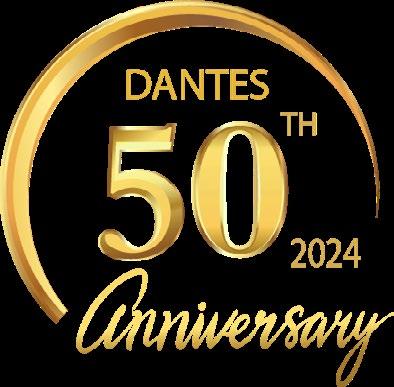DANTES






Doug Johnson is a native of Providence, Rhode Island, and currently serves as the DoD Military Training Evaluation Program Manager, Defense Activity for Non-Traditional Education Support (DANTES).
Doug oversees the outcomes and success of the Military Training Evaluation Program (MTEP) and ensures the effective implementation of data modernization and interoperability with key stakeholders.
Doug is a retired Navy Commander with over 31 years of serving in various education and training leadership roles. Before joining DANTES, Doug filled the role as Business Planning Manager for Perspecta, working in partnership with organizations such as Center for Research and Evaluation, Standards and Student Testing to support the U.S. Navy’s Testing Sciences Program.
Doug holds a BS in Business Administration from the University of South Carolina, Columbia, and a MBA from Trident University. Additionally, he holds both the Professional in Human Resources (PHR) and Society of Human Resources Certified Professional (SHRM-CP) certifications.

Simply put, MTEP’s mission focuses on improving our ability to translate military training and occupational experiences into a language (American Council on Education (ACE) recommended credit) easily understood and accepted by academic colleges and universities. However, this translation, documented on the Joint Service Transcript (JST), is not just about converting experiences into credits; it is about recognizing the profound value of military service in the educational landscape.
Evaluating military training and experiences for recommended academic credits is meticulous, ensuring each service member’s unique journey and contributions are acknowledged. Through this recognition, the path to academic achievement becomes shorter and more cost-effective, honoring the dedication and sacrifices of those who serve. Additionally, it’s essential to think about how the learning service members obtained can support other areas of their development, including admissions processes, pre-requisite requirements, resume building, and transfer of credit to meet course equivalents.
Tangible Benefits Include:
• Time Savings: By translating military experience into academic credits, service members can reduce the number of courses service members need to complete their degrees, significantly accelerating their educational journey.
• Cost Reduction: Fewer required courses mean lower expenses on tuition, books, and fees, making education more accessible and affordable for veterans and active-duty military personnel.
• Career Planning Support: Acknowledging military skills and experiences provides a competitive edge in career advancement, commissioning programs, transitions, and enhancing service members’ resumes and portfolios.
• Expanding Educational Choices: With over 2,500 colleges and universities accepting ACE credit recommendations, service members have a broader array of institutions that acknowledge their unique backgrounds, fitting their needs and ambitions.
• Widespread Credit Allocation: Thousands of credit hours have been awarded across all military branches, covering degree requirements, general education, and electives, showcasing the extensive impact of military experience in academia.

The vast landscape of military achievements lies an oftenunseen but crucial bridge to academic success. This bridge is not built of steel or stone but of dedication and expertise, meticulously maintained by our Educational Service Officers (ESOs) and counselors. The mission is simple and complex: Help educate our military learners about available tools, such as the Military Guide, while teaching them how to advocate for potential credit based on their knowledge and experience gained through military service.
In the gigantic ecosystem of military and academic achievements, ESOs and counselors stand as the linchpins, seamlessly bridging these two vastly different worlds. One of the most innovative ways ESOs and counselors can enhance their support is through the Military Learner and Education Counselor Sharing Feature tool in the Military Guide (https://militaryguide.acenet.edu/ ). This tool allows service members and military learners to jump-start their educational decisions by uploading their Joint Services Transcript (JST) to see all relevant ACE data immediately. More importantly, service members can share their JST findings directly with their counselors, fostering a more personalized and effective guidance process. By utilizing this feature, ESOs and counselors can work closely with service members to pinpoint precisely where their military training aligns with academic credit opportunities, thereby streamlining their path to degree completion.
Another fundamental way ESOs and counselors can help support is by fostering collaboration with service members and academic institutions at every opportunity. Many colleges and universities have dedicated resources for veterans and active-duty military personnel, a testament to the ongoing efforts to integrate military experiences into academic settings effectively. College credit recommendations are currently being accepted at over 2,500 educational institutions worldwide.
Through my own personal testimony, the diligent research and collaboration of a Navy Education Counselor helped the former Petty Officer Johnson find a university that recognized my military training and offered a supportive community that set me on my pathway to becoming a commissioned officer.

More importantly, as we continue to navigate the evolving landscape of translating military training into college credits, the dedication and advocacy of ESOs and counselors remain integral. Their commitment to recognizing and valuing service members’ diverse skills and experiences underscores their essential role in shaping the future of military education.
In FY23 alone, an astounding 247 military courses and occupations were evaluated by MTEP, which resulted in 51,403 academic course hours being reviewed for college credit equivalency. These numbers are due partly to the tangible impact of ESOs’ and counselors’ efforts but also highlight their critical role in bridging the gap between military service and academic recognition.


Ready to test your MTEP mastery? Dive into this quiz to ensure you are leveraging every tool and resource to benefit those you counsel:
1. How frequently should you review JSTs with service members to effectively map their military training to academic credits?
A) Once a year
B) As they plan their academic or career pathways
C) Only upon their initial visit
2. Which feature enhances personalized counseling by allowing direct sharing of JST findings?
A) TA Decide
B) Military Learner and Education Counselor Sharing Feature (Military Guide)
C) DANTES website
3. To keep updated on the latest Credit for Prior Learning policies, which resource is invaluable for education counselors?
A) Online forums
B) DANTES/ACE webinars and conferences
C) Traditional textbooks
Answers:
1-B, 2-B, 3-B. How did you do? Remember, staying informed and proactive in utilizing MTEP resources not only enriches your role as a counselor but also significantly impacts the educational trajectories of your servicemembers.
Bonus Question:
True or False! Service members and veterans are increasingly utilizing the JST to communicate their military training and occupational experience to colleges and universities.
Answer: True, In FY23, over 2.5 million web sessions were established for viewing of the JST online and 341,549 official JST transcripts were released to academic institutions.
Quick Recap – ESO’s/Counselors – Homework
Assignment:
1. Bridge the Knowledge Gap: Deep dive into MTEP’s processes to adeptly navigate service members through the credit translation journey. Your expertise will illuminate the path from military achievements to academic recognition.
2. Personalize the Guidance: Utilize tools like the Joint Service Transcript (JST) and the Military Learner and Education Counselor Sharing Feature. This approach customizes the academic planning process, aligning military training with precise credit opportunities.
3. Advocate and Innovate: Stay abreast of evolving policies and leverage platforms like the DANTES website and ACE Military Guide. Your advocacy ensures military training is valued within academic circles, opening doors to further education and career advancement.
DANTES 50th Anniversary: Celebrating a Legacy of Military Education
Remember to make the most of resources like the
DANTES website and celebrate milestones like DANTES 50th anniversary. These platforms offer not just information but also inspiration, showcasing the legacy and future of military education. With resources like the DANTES website at their disposal and the milestone celebration of DANTES’ 50th anniversary, ESOs and counselors are equipped with the tools and knowledge to offer unparalleled support to service members. These resources, coupled with the new Military Help Center, highlight a commitment to enhancing the educational journey for those who have dedicated themselves to serving our country.
ACE is pleased to announce the launch of our brandnew Help Center and refreshed web experience for military learners utilizing ACE recommendations, published on the Joint Services Transcript (JST). We believe that these enhancements will provide our military learners with a more intuitive and userfriendly experience, making it easier than ever to find the information they need to engage with ACE recommendations and put their military experience to work in civilian education and career opportunities.



The Department of Defense (DoD) Voluntary Education (VolEd) Program, through the Defense Activity for Non-Traditional Education Support (DANTES), partners with the American Council on Education (ACE) to translate military learning experiences into comparable civilian postsecondary college credit. ACE evaluates military training, education and job experience to provide recommended credits on the Joint Services Transcript (JST).
All enlisted, officers, warrant officers and veterans from active, National Guard and Reserve components in the Army, Marine Corps, Navy and U.S. Coast Guard are eligible. Air Force personnel who attended joint training offered by another Service should contact JST Operations to have a JST created.



DANTES partners with a variety of stakeholders to evaluate military training and occupational experiences
• American Council on Education
• Service training commands for the Army, Marine Corps, Navy and U.S. Coast Guard


• Evaluated military training and occupational experiences are translated into ACE college credit recommendations listed on the JST
• ACE college credit recommendations are accepted at 2,500+ colleges and universities



• Provides a head start by helping members begin college with credit
• Saves time and money because fewer courses are needed to complete degree requirements, avoiding the cost of tuition, books, and fees
• Helps prepare for college by potentially waiving prerequisites for advance courses


• ACE Military Guide: https://www.acenet.edu/Programs-Services/Pages/Credit-Transcripts/Military-Evaluations.aspx
• Air Force CCAF transcripts: www.airuniversity.af.edu/ Barnes/CCAF/DisplayArticle/803247/community-college-of-theair-force-transcripts/
• Joint Services Transcripts: https://jst.doded.mil/jst/


For today’s military learners who are seeking postsecondary degrees and certificates, navigating higher education can be challenging. They want opportunities to maximize benefits, streamline their education, and make informed decisions.
The ACE Military Guide makes it easier for military learners to get college credit for previous training and education. The Military Guide allows military learners to quickly search for potential credit related to their military experience and securely upload a Joint Services Transcript (JST) to analyze how military learning translates to academic credit. Institutions also have access to unique features that make awarding credit for military learning even easier!
Easily find information in one click. The newly designed ACE Exhibit was created with academic institution collaborators.
Military learners can jump-start their educational decisions by uploading their Joint Services Transcript (JST) to immediately see all relevant ACE data.
DEDICATED TOOLS FOR INSTITUTIONS
Advanced features allow academic users to evaluate students’ military learning to award credit and bring colleagues together in a streamlined workflow.
NEVER-BEFORE-AVAILABLE DATA
Access the newly developed ACE Standardized Taxonomy, historical data on credit awarded to military learners by all participating institutions.
Visit www.acenet.edu/militaryguide to start maximizing military experience to earn credit for prior learning.

CLEP Webinar Series for Education Counselors and Academic Institutions:
These webinars are hosted monthly by CollegeBoard and we encourage education professionals to register on the CLEP website.
• Wednesday, June 12, 10 am ET: CLEP & Military
• Wednesday, June 12, 3 pm ET: CLEP for Colleges & Universities
Join our webinars as part of DANTES’ commitment to the Services’ Voluntary Education (VolEd) communities and our service members. Our webinars range from a variety of education program topics. Visit our webinar page frequently to see what’s coming next!







